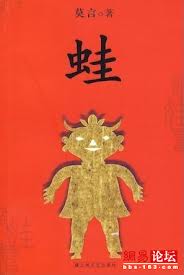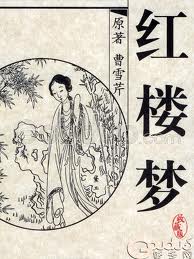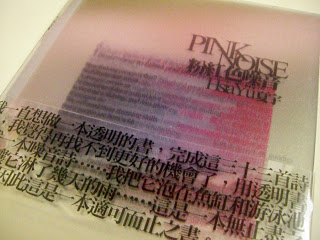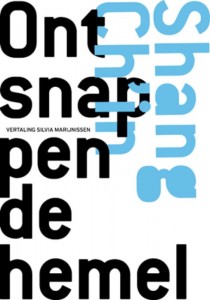Some ten years ago I suggested translating Mo Yan’s Sandalwood Death (莫言,檀香刑) to a Dutch publisher. Until then the publisher had had four of Mo Yan’s books translated from the English, and I explained to them why it would be better to translate directly from Chinese into Dutch: translating is not just a simple matter of substituting words from one language to another. A translator makes decisions for every word he chooses, when you translate from an intermediary language you are in fact translating the decisions of the first translator. Besides, translating a book involves a thorough understanding of both languages, their literary traditions and the context in which the book was written. When Chinese books are translated from the English (or any other language apart from Chinese) a translator may be at work who knows nothing or very little about Chinese history, culture, society or literature.
 In the end the publisher dropped Mo Yan, probably because the sales were not high enough. In 2010 I tried again with another publisher who I knew had been interested in Mo Yan for quite some time. By that time Frogs (蛙) had just come out and so I started translating Frogs. Ten days after I had finished the translation Mo Yan won the Nobel prize for literature!
In the end the publisher dropped Mo Yan, probably because the sales were not high enough. In 2010 I tried again with another publisher who I knew had been interested in Mo Yan for quite some time. By that time Frogs (蛙) had just come out and so I started translating Frogs. Ten days after I had finished the translation Mo Yan won the Nobel prize for literature!
Frogs is actually the first long novel I ever translated. I did several short stories, I am working on the famous eighteenth century novel The Dream of the Red Chamber (红楼梦together with two colleagues), and I have concentrated on translating poetry, which had become my main field of interest during my university years. I originally started translating poetry from the 1920s and 1930s in 1995, moved on to post-1950 poetry from Taiwan (on which I wrote a dissertation), and then I spent years on translating classical Chinese landscape poetry (an anthology of which was published last year as Mountains and Water/Berg en water). Translating a modern novel was different from anything I had done before.
Because all languages are different, all translation implies a transformation from the very beginning; word to word conversion does not exist. No matter which languages are involved, a translator is always creating a bridge between two worlds, narrowing a gap in space and time, trying to convey proverbs, notions, words, literary conventions, that are typical of one language into the proverbs, notions, words and literary conventions of the target language. On the one hand, the translator has to emphasize general, universal characteristics to reassure the reader with just enough familiarity to go on reading and to understand the text. And on the other hand he has to provoke the reader with strange and unusual characteristics that will enrich the reading experience. Logically, the further two cultures are separated, in space or time or both, the harder it will be to translate.
Translating a novel, I found, is not necessarily easier than translating poetry, as many people are inclined to think; it all depends on what kind of prose or poetry text you are translating. Does the prose text employ a lot of word games? Is the poem fairly straightforward? One always wants to get all the characteristics of the text across, which surface through things as sound, rhythm, style, atmosphere, mood – immaterial things that are different in all languages. A translator is one of the most thorough readers of the text, he first needs to grasp the essential elements, which he then transposes into the new language. In this, translating a good novel is essentially the same as translating a good poem. Yet, while translating a voluminous novel like Mo Yan’s Frogs one has to keep a comprehensive view of all those hundreds of pages, whereas the strength of a poem usually lies in its compactness. What I found the most difficult to translate, more than anything else, are poems with fixed forms, such as classical Chinese poetry. Because if you decide to render something of that fixed form in the translation as well, you are really limited – you have much less space than with any other literary form. And in the case of traditional poetry, the classical language, wenyan, forms an additional problem, since the language itself is very compact; in comparison Dutch is much more prose-like. Besides, classical Chinese literature is not only geographically far away from us, but centuries lie between the time of writing and the contemporary Dutch reader.
 I have always been able to translate texts that I have chosen myself, texts that I appreciate personally. I like writers who enjoy in one way or other to experiment and to surprise the reader. I like writers who have a good sense of humor and exaggeration, and who are visually strong as well. Xia Yu (夏宇), for example, one of my favorite poets from Taiwan, writes in “To give time to time” (給時間以時間) that somebody is shot, and that the blood oozes out like toothpaste – which I find very funny and surprising because she more or less equals the shooting to something as common as brushing one’s teeth. The scene comes alive in your mind:
I have always been able to translate texts that I have chosen myself, texts that I appreciate personally. I like writers who enjoy in one way or other to experiment and to surprise the reader. I like writers who have a good sense of humor and exaggeration, and who are visually strong as well. Xia Yu (夏宇), for example, one of my favorite poets from Taiwan, writes in “To give time to time” (給時間以時間) that somebody is shot, and that the blood oozes out like toothpaste – which I find very funny and surprising because she more or less equals the shooting to something as common as brushing one’s teeth. The scene comes alive in your mind:
Give Time to Time
– For Yan McWilliams
Since time became time
We have had to give time to time
Being is also being this way is not so difficult either
For being to be understood as being
Later if motivation’s turn comes up let me
Grab him by the throat and put a bullet through him
This sobriety of mine
Is almost wind
In a pump organ
And mornings like this I’ll give the name of soft
And exact
Exactness of mint in toothpaste
When I drill him through his blood will ooze like toothpaste
Bringing closure to his fury and exhaustion
For once at least he’ll again be a virgin boy
In the face of death
If I claim to be a murderer
Everyone is sure to want a narrative account:
I made the day my night immense and broken**
To make this moment flecked with starlight
And moreover to have loved If death is not wanderlust
Music rises vertically
We lie horizontally
(translation by Steve Bradbury, in Fusion Kitsch)
While classical poems tend to evoke a static image like a painting, modern poems like this one are more dynamic, providing more fluid visual images, as in a film. Xia Yu’s language underlines that aspect, it is mostly prose-like language highlighted especially by striking imagery, by juxtaposing contrasting images. From a syntactical point of view, most of the sentences are more or less regular, but they are complicated by the arrangement of the verse lines which she regularly uses to create ambiguity. Her sentences interlock with one another, making it impossible to tell where one sentence ends and another begins. Thus, a new line often puts the previous one in a different light, changing its meaning, as with these lines from ‘Written for others’ (寫給別人):
I love you I love you slowing
the pace till the very slowest so slow till
we hear gear-turning
sounds slippingly on our bodies
a beam of light that is the movie picture
only invented by someone to darken
the room to teach us
to make love slowly in the slowest motion
To transpose such language games into a different language can sometimes be quite difficult. But with patience I usually find a solution in the end, by devising a game that works equally well in Dutch.
 The prose poetry of Shang Qin (商禽), also a favorite of mine, is another good example of the prose-like style of modern Chinese poetry. Shang Qin’s poetry is very human and compassionate, but without becoming sentimental, because he combines the tragic and the comic in such a striking way. With his long, winding sentences he slows down the process of reading. A few sentences depict an imaginative scene, giving the reader food for thought. In ‘Giraffe’ (长颈鹿) for example, he draws attention to the notion of ‘time’ and ‘imprisonment’:
The prose poetry of Shang Qin (商禽), also a favorite of mine, is another good example of the prose-like style of modern Chinese poetry. Shang Qin’s poetry is very human and compassionate, but without becoming sentimental, because he combines the tragic and the comic in such a striking way. With his long, winding sentences he slows down the process of reading. A few sentences depict an imaginative scene, giving the reader food for thought. In ‘Giraffe’ (长颈鹿) for example, he draws attention to the notion of ‘time’ and ‘imprisonment’:
After the young prison guard noticed that at the monthly physical check-up all the height increases of the prisoners took place in the neck, he reported to the warden: ‘Sir, the windows are too high!’But the reply he received was: ‘No, they look up at Time.’
The kindhearted young guard didn’t know what Time looks like, nor its origin and whereabouts, so night after night he patrolled the zoo hesitantly and waited outside the giraffe pen.
(translation by Michelle Yeh)
In Mo Yan’s writings, too, I appreciate the sense of humor and the grotesque. One of the opening scenes at the beginning of the Sandalwood Death, where Meiniang dreams about her father being beheaded, becomes comical when the chopped head goes on the run and defends itself with its plait against the wild dogs that follow behind. Such surprises, which set the tone for the book, are are a lot of fun to translate, because you often need to accentuate things to make sure that the humor comes across.
In his use of language Mo Yan is very different from poets like Hsia Yu and Shang Ch’in. Both poets try to push the Chinese language to its limits, creating ambiguity or slowing down reading. Mo Yan is above all a story teller in the oral tradition – in all his novels, technically and structurally diverse as they may be. He writes in colloquial language, using a lot of repetition, exaggeration and irony, inserting many four-character proverbs in his stories and making references to famous classical Chinese texts. His forte lies in the telling itself, and he narrates in a very detailed, baroque way, using all the senses. In Mo Yan’s writings one smells, tastes, hears, sees and feels. In-depth psychological analysis of the characters – as we find in western novels, with Flaubert’s ‘Madame Bovary’ whose inner life is described in detail as one of the best-known examples – is absent. Instead, it is up to the reader to derive from events and actions what kind of people these characters are.
It is these aspects that I have tried to bring across in the Dutch translation of Frogs. Yet, to guarantee more or less faithful effects in Dutch one still needs to adapt the style somewhat. Word repetition, for example, is much less accepted in Dutch than it is in Chinese; in fact, grammatically speaking, Chinese already involves far more word repetition, whereas Dutch language rules forces you to avoid it. For this reason, I have reduced repetition on the level of isolated words to proportions that are acceptable to Dutch readers, while retaining the oral, repetitive character of the original.
Similar considerations and choices are to be made for all text characteristics; the translator constantly needs to reflect about how certain things ‘function’ in the original text and how a similar effect can be achieved in the translation. How do you render the typical Chinese four-character proverbs or other sayings that occur so often? One could use Dutch equivalents (if not too specific Dutch), give literal translations, or paraphrase the meaning and ‘forget’ that it was originally a proverb. Again one needs to consider that colloquial Dutch makes far less use of proverbs than Chinese. Exaggerations and irony, often somewhat culturally defined, regularly need to be accentuated – if you do not the humor is lost on the Dutch reader.
Names will sometimes lead to translation problems as well. Frogs is for the greater part a long letter written by the narrator, Tadpole, to a Japanese author friend. The sentence with which he starts the long story about his aunt is: ‘Sir, it used to be good practice in our region to give children at their birth names of body parts or organs, such as Nose Chen, Eye Zhao, Large Intestine Wu or Shoulder Sun. I have not examined how this use has come into existence, probably it was rooted in the belief ‘those who have a humble name will live long’, or maybe it had something to do with the psychological tendency of mothers to consider the child as a piece of their own flesh. Nowadays this custom is not very popular anymore, young parents no longer want to give their children such strange names. Nearly all the children in our region now also have names as elegant and original as the characters in the television series from Taiwan, Hong Kong or even Japan or Korea. Most children who once were given the name of a body part or organ have changed it into an elegant one, even though there are some who have failed to do so, Ear Chen and Eyebrow Chen for example.’
It is no problem at all to translate this passage, but the choices will be crucial to the remainder of the translation. Because of the absurdity of the names, which is accentuated by the narrator’s additional information, I was forced to translate them, which is uncommon in Dutch translations of Chinese literature. Several decades ago translators occasionally translated names, since they have meanings after all, but this had an unintended ridiculous effect and sometimes irritated the reader. In Frogs the ‘body part’ names are hilarious, as the narrator (called Foot Wan or Runner himself) explains.
The narrator’s first wife is one of the few of his contemporaries who is not named after a body part. Her name is Renmei (meaning righteous and beautiful), which I have just written down in the pinyin transcription, without translating. But then her family name lead to quite a comical problem, for ‘wang’ means ‘cheek’ in Dutch; with the name Wang Renmei she seemed to have a been named after a body part after all! For that reason the family name Wang is banished from the Dutch translation…
The central character in Frogs is a gynaecologist, who works in the countryside of Gaomi, in Shandong. This woman, called Aunt, who is professionally educated, first and foremost, to help women in their pregnancies and deliveries, needs to face after a while the reality of the one-child-policy. Aunt, a loyal party member, faithfully follows the rules, and thinks of ways to implement them. More and more often, she needs to sterilize men who already have a child and to abort women who become pregnant against the rules. In the beginning of her career Aunt is celebrated as a hero, after saving the life of several women and babies who would not have made it with the old methods of the traditional midwives; but she ends up being considered the devil of the village. Through her actions, Aunt, who has been through some hardship herself, comes across as a tough person, with a personal sense of justice. She is a complex figure, a woman who remains childless herself, who holds the destiny of many babies in her hands, and who at the end of her life has an enormous guilt complex.
Many of Mo Yan’s books are set in twentieth century China and show the turbulent changes that took place in that century. Nearly all of them show social engagement, but that does not mean Mo Yan is a politically engaged writer. He is obviously not a political activist, nor is Frogs a political book. Through the ups and downs of the gynaecologist, her relatives and fellow-villagers, we read about China’s recent history, about hungry children eating charcoal during the Great Famine, and about the cruelties of the Red Guards during the Cultural Revolution. But the national history remains in the background, what counts is how the stories depicts the characters and their actions. These are not flat, cardboard figures, but people who have good and bad sides, they show their dilemmas.
For some of the main characters a single event or move turns out to determine the rest of their lives. In that sense Frogs appears to be a novel in the line of the French author Jean Paul Sartre, a novel about the personal responsibility of human beings for their lives and actions. For a very good reason the narrator of the book, who has taken the penname Tadpole, expresses, in the beginning, his admiration for Sartre’s plays, such as Flies and Dirty Hands, and his desire to represent the story of his aunt in such play – which he does in the final part. Mo Yan’s book mostly raises questions, without giving answers. Could his aunt have said ‘no’ to the tasks the authorities imposed on her? Why does the narrator himself not oppose to his wife’s forced abortion? Why does he feel that his career is more important than his wife and child? Why did his wife risk her life by getting pregnant illegally? In the end Frogs is about guilt and responsibility – themes that amply surpass the Chinese context.
 That is my personal view of Frogs, which I developed through spending about one and a half year on translating the book. It feels as if the book has become part of me, and after its publication I checked the newspapers every week, hoping for a positive review! The reactions were somewhat mixed, most Flemish newspapers were very enthusiastic, but a few Dutch newspapers were rather neutral, showing neither much enthusiasm nor much criticism. Most readers however seem to appreciate the book and it is selling rather well. This and the Nobel prize ensure that the Dutch public will have the opportunity to read more of Mo Yan in the near future – unfortunately not all translated by me… However, I now do have two years ahead of me in which I will finally be translating the Sandalwood Death, the novel with which it all started for me.
That is my personal view of Frogs, which I developed through spending about one and a half year on translating the book. It feels as if the book has become part of me, and after its publication I checked the newspapers every week, hoping for a positive review! The reactions were somewhat mixed, most Flemish newspapers were very enthusiastic, but a few Dutch newspapers were rather neutral, showing neither much enthusiasm nor much criticism. Most readers however seem to appreciate the book and it is selling rather well. This and the Nobel prize ensure that the Dutch public will have the opportunity to read more of Mo Yan in the near future – unfortunately not all translated by me… However, I now do have two years ahead of me in which I will finally be translating the Sandalwood Death, the novel with which it all started for me.







